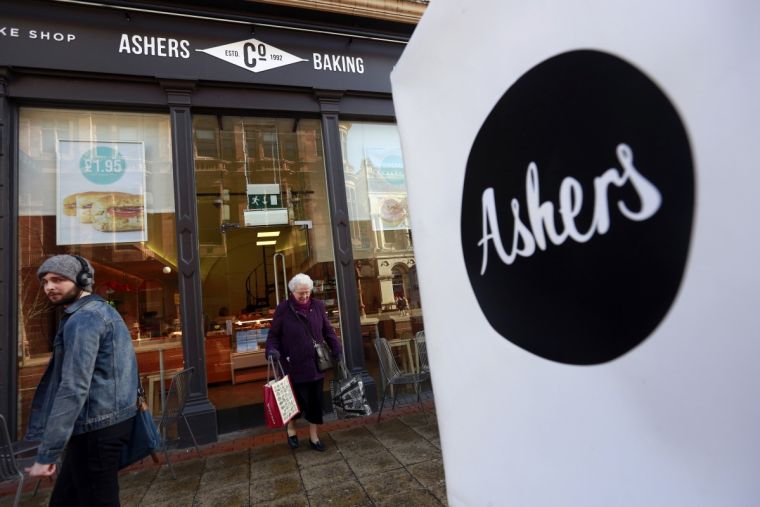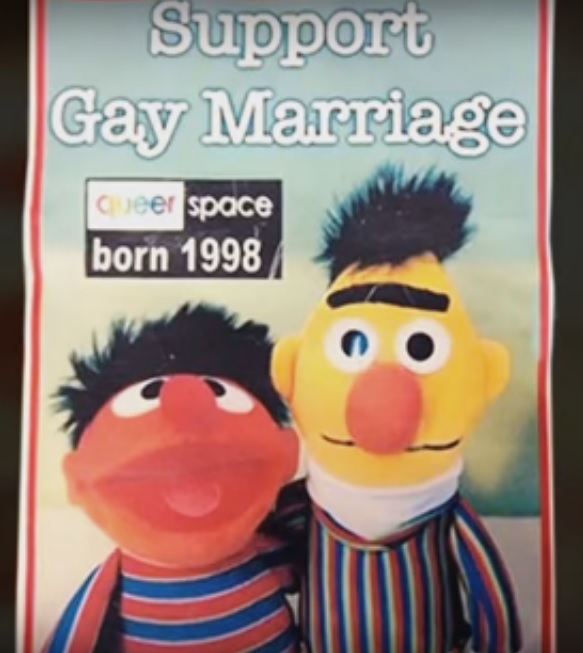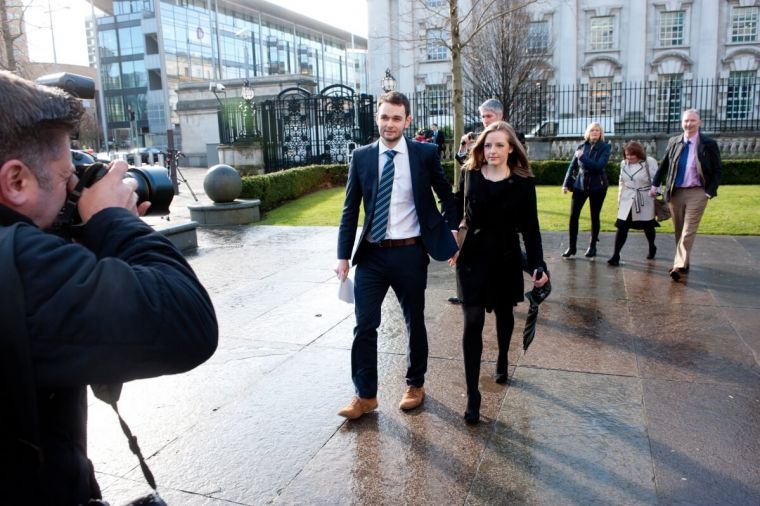Ashers Bakery 'gay cake' case: What are the issues at stake?
A Christian-run bakery is before the Supreme Court today and tomorrow after being found to have discriminated by refusing to bake a 'gay cake'.
Ashers Bakery declined an order from LGBT activist Gareth Lee who asked for a cake decorated with the slogan 'Support Gay Marriage'. It was ordered to pay £500 in compensation after being taken to court by Lee, backed by the Equality Commission for Northern Ireland.
Ashers, backed by The Christian Institute, appealed the ruling but it was upheld by the Court of Appeal in Belfast in October 2016.

Now the decision has reached the Supreme Court which is sitting in Belfast for the first time. The case has attracted international attention and will be heard by the Supreme Court president, Lady Hale, the deputy president, Lord Mance, Lord Kerr, Lord Hodge and Lady Black.
The case has highlighted the tension between equality laws and religious freedom with a last-minute intervention by Northern Ireland attorney general suggesting the case could raise questions about the legitimacy of Northern Ireland's legislation.
The company was found to have discriminated on three grounds: sexual orientation, religious belief and political opinion.
Here is what at stake:

1. Sexual orientation
The appeal court accepted that Ashers did not discriminate against Lee because he was gay. Daniel McArthur, general manager of the bakery, told the Court of Appeal: 'We had served Mr Lee before and would be happy to serve him again. The judges accepted that we did not know Mr Lee was gay and that he was not the reason we declined the order.'
Rather, Ashers refused because of the slogan 'Support Gay Marriage' which it said contravened the owners' religious beliefs.
However, Ashers was found to have breached discrimination laws because, as the appeal judges pointed out, it would not have objected to a slogan that supported heterosexual marriage.
'We accept that it was the use of the word "gay" in the context of the message which prevented the order from being fulfilled,' the judges said at the appeal hearing in October 2016.
'This was a case of association with the gay and bisexual community and the protected personal characteristic was the sexual orientation of that community.'
2. Religious belief:
Ashers was found to have discriminated on the basis of religious belief because it was motivated by faith in turning down Lee's order.
From Lee's perspective this is about a business providing services to everyone and not discriminating on the basis of its own religion. Speaking outside the Supreme Court hearing today, Dr Michael Wardlow from the Equality Commission Northern Ireland said the case is about a business being accountable to 'settled laws' when offering services in public realm, not about quashing convictions or views.
But from the McArthur's perspective this is using a law against them that was designed to protect religious freedom. The Christian Institute, which supports Ashers, said in a briefing: 'This risks turning the entire purpose of religious discrimination law on its head. Rather than protecting religious people it may deem their faith-motivated actions to be unlawful. This is particularly concerning since, unlike race or sexual orientation, religious belief governs the whole of a person's life and actions.'
3. Political opinion
Unlike the rest of the UK, Northern Ireland outlaws discrimination on the grounds of political opinion. These laws were put in place to tackle discrimination against Unionists and Nationalists.
However they are relevant in this case because the issue of same-sex marriage is a political one in Northern Ireland, where the law does not recognise gay marriage.
4. European Union human rights
As well as the internal discrimination issues, the case may have wider ramifications for Northern Ireland's equality laws.
In a dramatic intervention at an early Court of Appeal hearing, John Larkin QC, Attorney General in Northern Ireland, raised a potential conflict between the region's equality legislation (which is not the same as the 2010 Equalities Act) and European human rights laws. He said the case was 'about expression and whether it's lawful under Northern Ireland constitutional law for Ashers to be forced...to articulate or express or say a political message which is at variance with their political views and in particular their religious views'.

It is up to the five Supreme Court judges which, if any, of these areas they pursue.
The judgment is not expected for several weeks, and may not come before the Supreme Court's summer recess. But if it were to rule against Ashers, there is the possibility the company will take the case further, to the European Court of Human Rights in Strasbourg.











